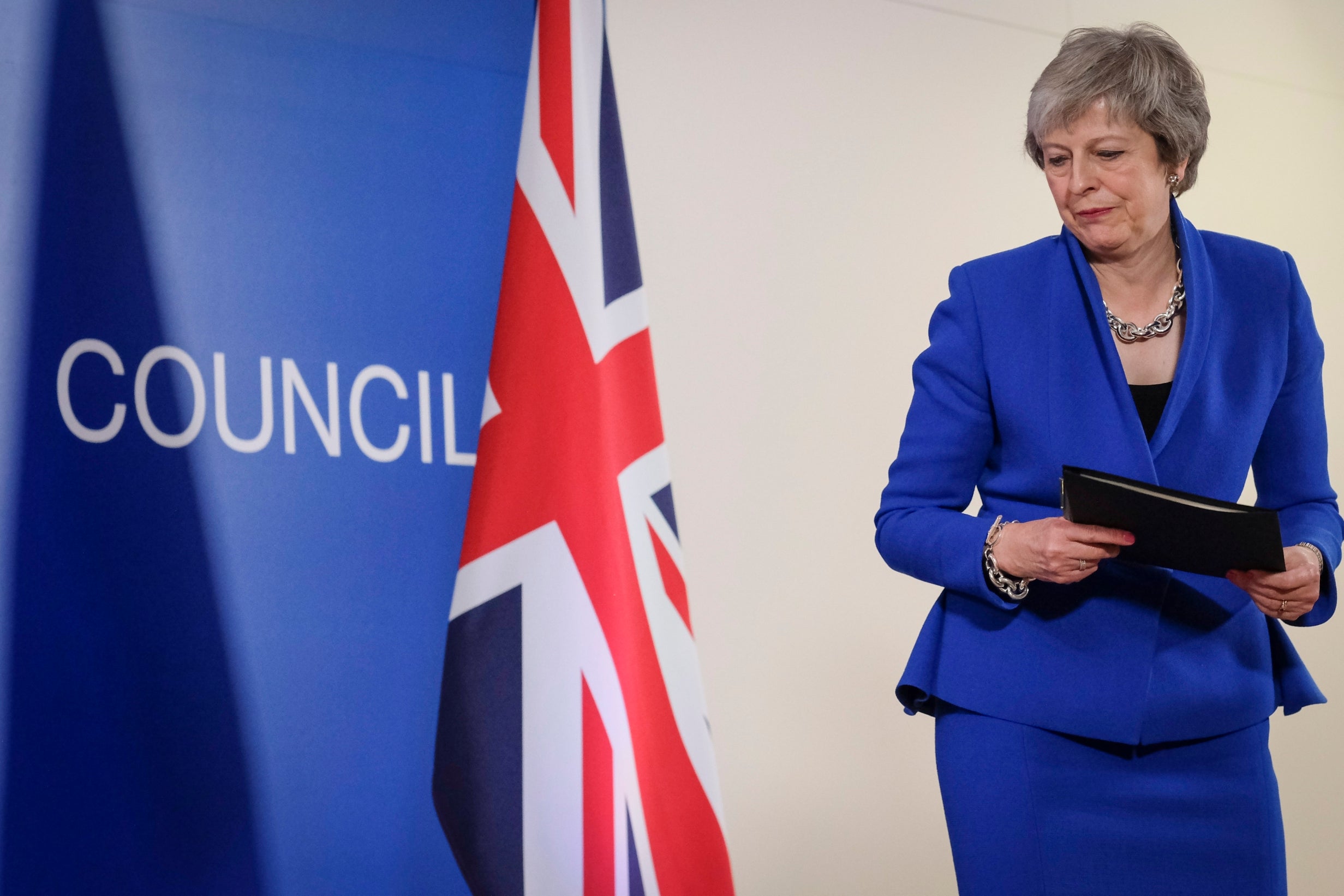Brutal cost of May’s Brexit is £100bn Mike Tyson haymaker aimed at British people
A report by the National Institute for Economic and Social research says we’ll pay more than £1000 each by 2030 for the rotting corpse the prime minister is serving up

Your support helps us to tell the story
From reproductive rights to climate change to Big Tech, The Independent is on the ground when the story is developing. Whether it's investigating the financials of Elon Musk's pro-Trump PAC or producing our latest documentary, 'The A Word', which shines a light on the American women fighting for reproductive rights, we know how important it is to parse out the facts from the messaging.
At such a critical moment in US history, we need reporters on the ground. Your donation allows us to keep sending journalists to speak to both sides of the story.
The Independent is trusted by Americans across the entire political spectrum. And unlike many other quality news outlets, we choose not to lock Americans out of our reporting and analysis with paywalls. We believe quality journalism should be available to everyone, paid for by those who can afford it.
Your support makes all the difference.Put your hands up if you voted to be poorer. Much poorer.
The National Institute for Economic and Social Research (NIESR) has just produced a report outlining how much poorer Brexit will make us.
What it shows is that Theresa May and her government are preparing to smash their country in the mouth with the sort of power even Mike Tyson struggled to muster when he was in his heyday as the most feared boxer on the planet. Call it the £100bn haymaker.
The problem with that sort of number is that while most of us know that £100bn is an awful lot of money we aren’t really equipped to understand what it means in practice. The number is simply too big. It needs some context.
The same is true for NIESR’s contention that the UK’s GDP will be smaller by 3.9 per cent by 2030 than if we were to stay in the European Union. That looks like a rather small number, even though it’s actually enormous if you consider the fact that it refers to the UK’s total economic output. Helpfully, NIESR has provided some context. It is roughly equivalent to losing the annual output of Wales, or that of the financial services industry in London.
By 2030, which will be at the end of the UK’s first decade outside the EU, the research predicts that GDP per head will fall by 3 per cent (it’s lower than the 3.9 per cent figure partly because there will be more economically active people to share the pain).
This amounts to an average cost per person of £1,090, on top of what we’ve shelled out through the damage already done as a result of two years of crippling economic uncertainty.
That puts me in mind of another incident involving the boxer I mentioned earlier: The one when he bit the ear of Evander Holyfield during a fight.
Could you easily afford to lose just over £1,090?
Of course, we’re talking about GDP here and not wages. But you get the picture.
There are a whole bunch of other numbers in the study that look equally horrible. About the only good thing one could say about the rotting corpse May is serving up is that it’s a hell of a lot better than the “orderly” no deal favoured by some Brexiteer loons. It would cost 5.5 per cent of GDP, or £140bn. That amounts to kicking the country when it’s already lying prone on the canvass.
This all serves to emphasise why The Independent is campaigning for a Final Say. The people really ought to be asked if this is what they really want. It’s a world apart from how Brexit was sold.
It’s worth pointing out that the research was sponsored by the People’s Vote Campaign. But NIESR is only really saying here what an awful lot of economists have said already.
But, but, but, this is only a forecast and forecasts can be wrong.
This is what Brexiteers might describe as their trump card. It’s that rare thing: something they say that’s actually close to the truth.
But NIESR addresses that point, and in a rather elegant way. It’s a lengthy passage, but I’m going to put down the lot because it’s important
“Long-term forecasts are especially uncertain and can be likened to trying to forecast what the income of a school leaver will be in 10 years’ time, which is likely to be determined by a whole range of unpredictable factors,” NIESR states, with an honesty which has become terribly rare in British public life.
“By contrast, the current exercise aims to compare different scenarios on a consistent basis, holding constant many of the factors that affect the development of the economy, and varying only the economic relationship between the EU and UK. This is more akin to trying to assess how much higher a school leaver’s income would be in 10 years’ time if they gained a degree compared with if they did not. This calculation is much more precise than trying to forecast their income.”
The reason people still go to university (as did most of the cabinet), despite the appalling cost, is that the stats show it will make them richer in the long run. They’ll also end up living longer and probably happier lives.
There’s a theory that Britain could be poorer but happier after Brexit. But take it from me (having experienced it growing up), no one’s really happy about being poor.
Join our commenting forum
Join thought-provoking conversations, follow other Independent readers and see their replies
0Comments